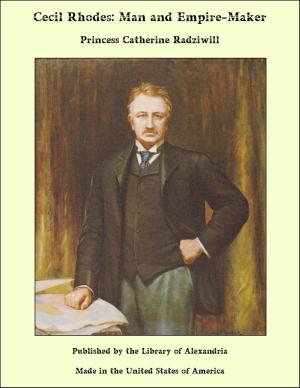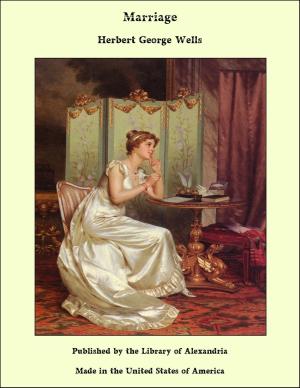All But Lost: A Novel (Complete)
Nonfiction, Religion & Spirituality, New Age, History, Fiction & Literature| Author: | George Alfred Henty | ISBN: | 9781465627773 |
| Publisher: | Library of Alexandria | Publication: | March 8, 2015 |
| Imprint: | Language: | English |
| Author: | George Alfred Henty |
| ISBN: | 9781465627773 |
| Publisher: | Library of Alexandria |
| Publication: | March 8, 2015 |
| Imprint: | |
| Language: | English |
Fred Bingham was now rather an important person in his way. He had a large number of works in hand; he was contractor for miles of sewers in and around London. He was building a nobleman’s mansion in Sussex, and a large church in Birmingham. He had a pier in hand down in Cornwall, and a railway in Durham. Altogether he appeared to be a flourishing man. People who met him casually, spoke of him as an extremely pushing, sharp young fellow, with a pleasant manner; men who met him in business said he was a cute fellow, but hard, sir, hard as nails. Any one who had seen him at home, as his wife and his servants saw him, knew him for a morose and irritable tyrant. Not that he had not his pleasant moments, when he would jest with his wife, and speak jokingly to the servants, and be for a short time pleasant and apparently light-hearted, but the slightest thing would bring the cloud over his face, and his sharp voice would say the most bitter things to every one around him, regardless of who heard him. His wife was greatly changed since he married her; never actually pretty, there had yet been a trusting kindliness in her face, and under happier auspices the poor little heiress might have blossomed out into a very bright little flower. But now the bud had closed up on itself, as if stricken with the touch of a bitter March wind, and she was a silent, timid woman. She loved her husband still, but she feared him even more than she loved him. She was always nervously trying to please him, and was ever ready to laugh if he was in a humour to joke. She bore his bitterest taunts without an answer, although a flush of pain, as if she had been struck, came up sometimes over her face when he spoke so to her before the servants. In money matters her husband was liberal. He had always been openhanded as a boy, and now he never grudged his wife any thing that she fancied. She had her carriage, and her maid, and when she was in the country he seldom came back from his visit to London without a rich dress, or a pretty bonnet, or some present which he thought she would like. To his servants too he was a liberal, and in some respects a kind master. He liked the pleasure of giving, and if presents could have bought love, he would have been adored by those around him. But his irritable temper and his bitter tongue would constantly inflict wounds which no presents could salve, no mere burst of good humour heal. One reason of his irritability was unquestionably the state of his business. Large as it apparently was, his position was precarious. The whole of his wife’s capital was sunk in it, but that was as nothing in comparison to the requirements of such extensive works as he was now carrying on. He had, therefore, been obliged to borrow large sums of money, and to discount his payments for work done. He was staying alone now in his house in Harley Street, his wife being down at a place he had taken to be near his work at Durham; and as usual, during these London visits, was in an exceedingly irritable state of temper, when among his letters he received one signed Robert Barton. Its contents were brief.
Fred Bingham was now rather an important person in his way. He had a large number of works in hand; he was contractor for miles of sewers in and around London. He was building a nobleman’s mansion in Sussex, and a large church in Birmingham. He had a pier in hand down in Cornwall, and a railway in Durham. Altogether he appeared to be a flourishing man. People who met him casually, spoke of him as an extremely pushing, sharp young fellow, with a pleasant manner; men who met him in business said he was a cute fellow, but hard, sir, hard as nails. Any one who had seen him at home, as his wife and his servants saw him, knew him for a morose and irritable tyrant. Not that he had not his pleasant moments, when he would jest with his wife, and speak jokingly to the servants, and be for a short time pleasant and apparently light-hearted, but the slightest thing would bring the cloud over his face, and his sharp voice would say the most bitter things to every one around him, regardless of who heard him. His wife was greatly changed since he married her; never actually pretty, there had yet been a trusting kindliness in her face, and under happier auspices the poor little heiress might have blossomed out into a very bright little flower. But now the bud had closed up on itself, as if stricken with the touch of a bitter March wind, and she was a silent, timid woman. She loved her husband still, but she feared him even more than she loved him. She was always nervously trying to please him, and was ever ready to laugh if he was in a humour to joke. She bore his bitterest taunts without an answer, although a flush of pain, as if she had been struck, came up sometimes over her face when he spoke so to her before the servants. In money matters her husband was liberal. He had always been openhanded as a boy, and now he never grudged his wife any thing that she fancied. She had her carriage, and her maid, and when she was in the country he seldom came back from his visit to London without a rich dress, or a pretty bonnet, or some present which he thought she would like. To his servants too he was a liberal, and in some respects a kind master. He liked the pleasure of giving, and if presents could have bought love, he would have been adored by those around him. But his irritable temper and his bitter tongue would constantly inflict wounds which no presents could salve, no mere burst of good humour heal. One reason of his irritability was unquestionably the state of his business. Large as it apparently was, his position was precarious. The whole of his wife’s capital was sunk in it, but that was as nothing in comparison to the requirements of such extensive works as he was now carrying on. He had, therefore, been obliged to borrow large sums of money, and to discount his payments for work done. He was staying alone now in his house in Harley Street, his wife being down at a place he had taken to be near his work at Durham; and as usual, during these London visits, was in an exceedingly irritable state of temper, when among his letters he received one signed Robert Barton. Its contents were brief.















